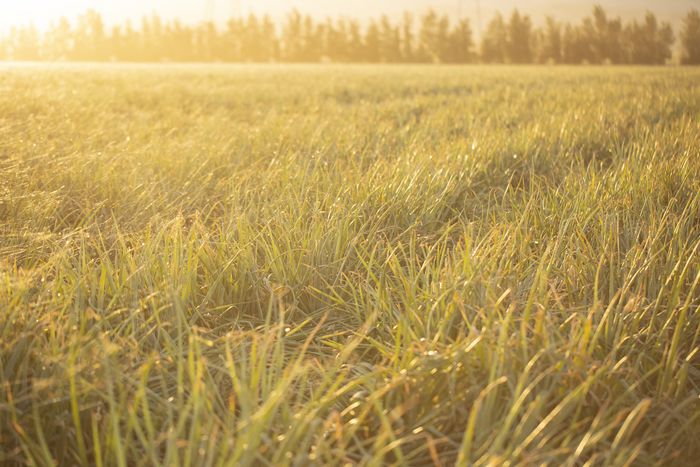It’s onion planting season, and Rio Farms Onion Division is hard at work making sure our crops are taken care of. We plant and harvest onions in three main regions throughout California, and each area requires specific soil considerations, monitoring, and daylight hours. Find out more about what it takes to plant Gills Onions, and how we’re able to bring customers the best value-added onion products.
Where We Plant Our Onions
Onion planting and harvesting is a year-long effort in California. “In October, we start planting in Imperial County because of the warm climate,” said Jose Cardona, Operations Manager at Rio Farms’ Onion Division.
This southern California location features a hot desert climate which is perfect for our short-day onions (onions that need 10–12 hours of daylight to grow). In October and November, the Rio Farms team is busy making sure these onion crops are set up for a successful harvest in the Spring.
Next, we move on to our San Joaquin Valley location in Kern and Fresno counties from November through February (for a harvest in June). The fields are one of our strongest growing areas because the desert climate favors all three daylight categories: short-day onions (10–12 hours), long-day onions (14–16 hours), and intermediate-day onions (12–14 hours).
The last location for planting is our King City fields in Monterey County. The team starts planting in the middle of March for a harvest in September.
“Each Fall, we’re still harvesting the current season even as we begin planting for the next growing season in the southern part of the state,” said Cardona of the year-round schedule. “The onion train doesn’t stop.”
Monterey County is where most of our long-day onions are grown. These slightly smaller and more firm onions have tighter rings that make them great for storage. King City is home to warm, dry summers, and mild winters that make these onions happy.
How We Monitor Our Planted Crops
After the initial planting process, our team continues to travel between our fields in Brawley, Bakersfield, Fresno, and King City to monitor growth, test soil pH levels, and troubleshoot storms.
“Early on, we monitor for germination. How much of the seed germinated? How much did we lose?” said Cardona. “If we’re losing volume, we figure out why – sometimes bulb mice or worms – and have an internal discussion on the best way to move forward, whether that means pushing back to a later time slot, or continuing to keep watch.”
How Storms Impact Crop Yield
While California offers a variety of climates agreeable to onion growing, it also falls victim to inclement weather.
“I’ve seen fields ankle-high with hail, completely wiped out,” said Cardona. “It’s unfortunate, but we have to give it a few weeks to see if the onions regrow.”
While our growers can predict some variables, no onion planting season is the same, and sometimes adjustments have to be made.
Our growing regions sometimes face flash flooding, hail, and high winds. If growing onions get damaged by inclement weather, there is an increased risk of bacteria and fungus entering the plant, which can lead to rot. Our boots-on-the-ground farmers and quality control teams monitor onions throughout the different stages of growth to make sure every crop is healthy and on track for harvest.
How to Plant in a Dry Spell
Dry spells can also be difficult for onion growth, which is why Gills has focused efforts on water management. In fact, we have reduced water consumption by 40% due to drip irrigation systems, even amidst drought conditions.
“After this last wet year, water availability hasn’t been as much of an issue, but in the past, we have had to problem solve and plan for increased acreage in other locations throughout the state,” said Cardona.
Quality Seeds Make Quality Onions
With planting season, so much care and attention is focused on our high-quality seeds and soil health as well. Over time, our processes have evolved and improved to create the best onion-growing conditions in California. We call it “The Gills Way,” and it’s been fine-tuned since 1983.
Gills prides itself on innovative onion seed varieties that are carefully curated for growth, flavor, and durability. These seeds are dispersed mechanically at the start of planting season and monitored closely each year for yield.
Our partnership with Rio Farms also allows us to provide much-needed micro and macronutrients to our soil, which results in stronger roots and healthier stalks. Each region requires its own special combination of soil nutrients, and we make sure to provide individualized care to these crops.
Choose Gills for Onions Planted to Perfection
See the difference in our whole-peeled, sliced, diced, and slivered onions that are planted, processed, and packaged to perfection.
Ready to try onions grown “The Gills Way?” Contact our sales department to learn more.

